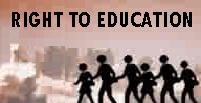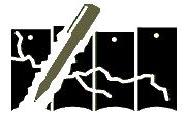Education Under
Occupation ...
... Learning to
Improvise
Nick King,
foreword by
Ahdaf Soueif

- LINKS
 Birzeit University Right to Education Campaign
Birzeit University Right to Education Campaign
 Birzeit University
Birzeit University
 An-Najah University
An-Najah University
 Palestinian Campaign for the Academic & Cultural Boycott of Israel
Palestinian Campaign for the Academic & Cultural Boycott of Israel
SYNOPSIS
Preface
Foreword - Education in Jerusalem and Cities of the West Bank
Ahdaf Soueif’s account of her visit to educational institutions across the West Bank in 2003.
- "In the rural district south of Al-Khalil [Hebron], Israeli settlers harass and intimidate the children. To avoid the settlers the children have taken to going a roundabout way to school. This means that a journey that used to take them 20 minutes now stretches to some two hours."
1. A Generation or Two Ahead
An interview with Ramzi Rihan, Birzeit University, considers the ambitions, achievements and constraints of the education sector since the advent of the Palestinian Authority under the ill-fated Oslo accords.
"Time is a rubber band in this country. Economically we are back to pre-Oslo and as far as political developments go we are back to somewhere around 1995, 1996." (Ramzi Rihan)
2. Higher Education - A Rough Guide to the Landscape
An overview of the structure of the fledgling higher education sector under the Palestinian Authority, the problems and challenges faced, and the development opportunities proposed.
“The goals of higher education go beyond the economic dimension to include social advancement and scientific and cultural productivity in all its forms.” (Palestine Human Development Report 2002).
3. The Impact of Military Occupation on Palestinian Education
The methods adopted by the Israeli military to harass Palestinian students, staff, teachers and educational institutions. Students’ own testimonies give vivid impressions of the stress and hardship imposed under a regime of random closure and curfews.
“... The Israeli occupation army entered the flats at 4:30am. They were scaring students by shouting at them from the stairs, while using dogs to intimidate them. They ordered everyone to leave their flats and stand in the street in their pyjamas. ” (An-Najah University undergraduate)
4. Restrictions on Academic Freedom
A chronicle of Birzeit University’s experiences throughout the period of Israeli occupation, featuring translation of material collated by the University from their records of military interventions in the University’s affairs.
“The University closed without warning for 37 days as a result of activity at checkpoints. The number of students who were arrested attained the highest level in the history of the Faculty: 115. Sixty-two percent of these were freed without being given any notification of the charges under which they were arrested ...” (from Birzeit University archives)
5. Study by Stealth
The daily struggle to maintain operational viability is revealed in an interview with Rami Hamdallah, President, and Sami al-Kilani, Director of Public Relations, at An-Najah University, Nablus.
“During the Israeli occupation, we were put under much pressure by the Israeli administration to change the content of courses, but the faculties and the teachers refused that order, saying that they were prepared to close the university rather than have anybody interfere with what we are teaching.” (Sami al-Kilani)
6. Rule by Exception
How Israeli policies appear in the context of international law and the response of the international community to reported infringements of human rights. The appeal to apply cultural and academic sanctions (PACBI Call for Academic and Cultural Boycott of Israel).
“The extent to which Palestinian society lives under circumstances unlike those faced by many other people in the world is indicated by the extraordinary number of resolutions tabled at the United Nations focussing on Israel’s conduct . . . Nevertheless, Israel has continued to benefit from the fundamental freedoms that human rights conventions protect in its global academic relations.”
